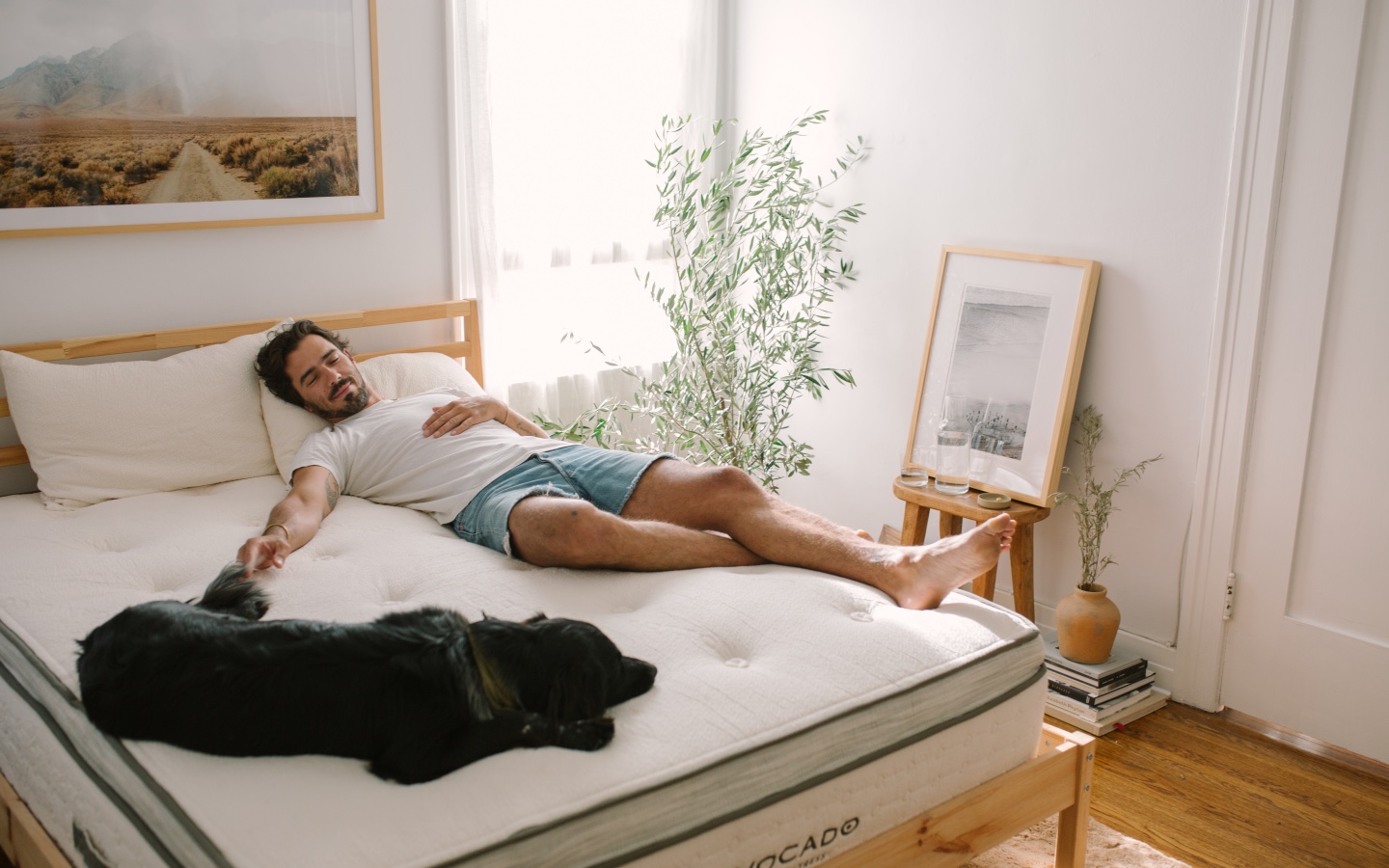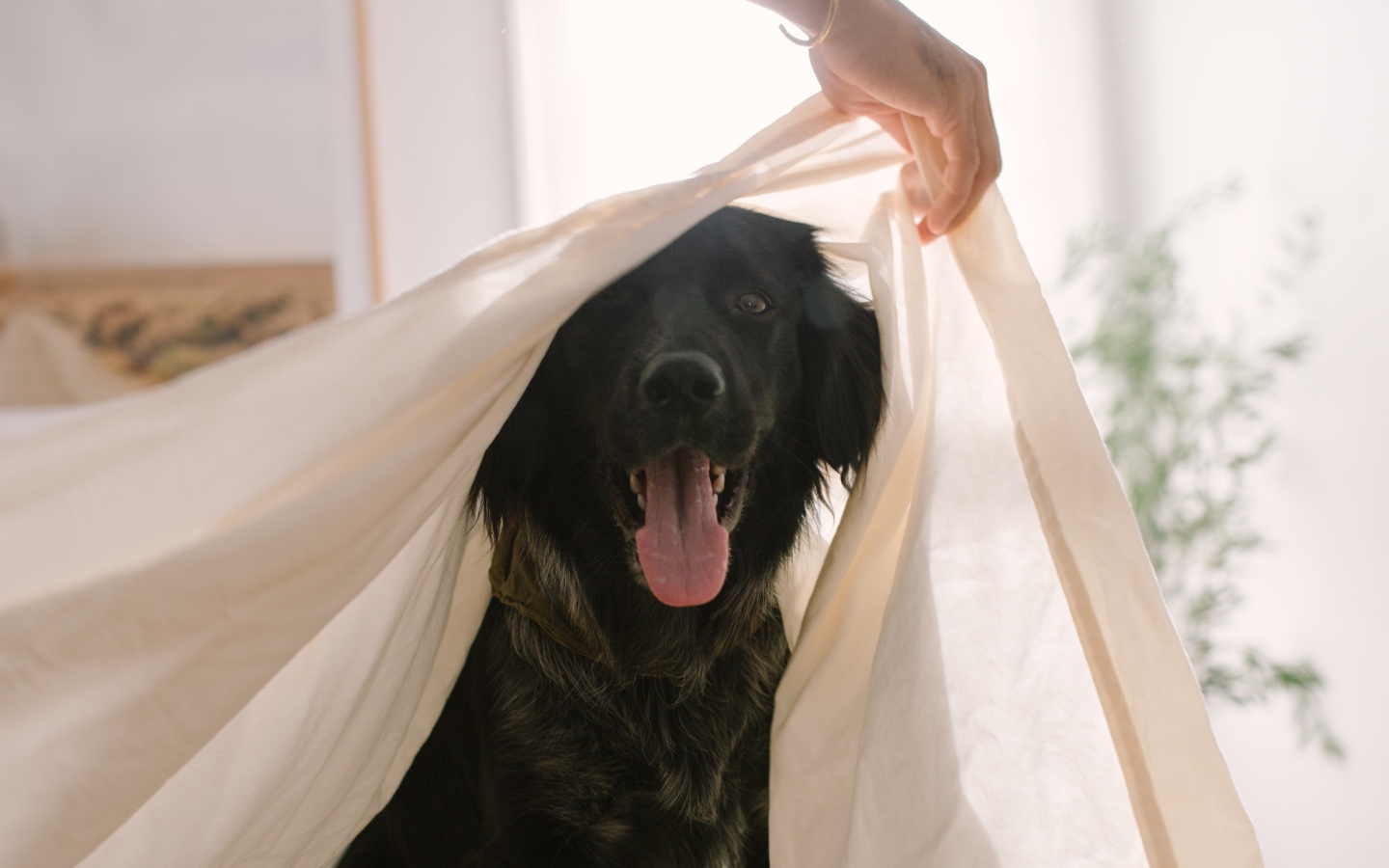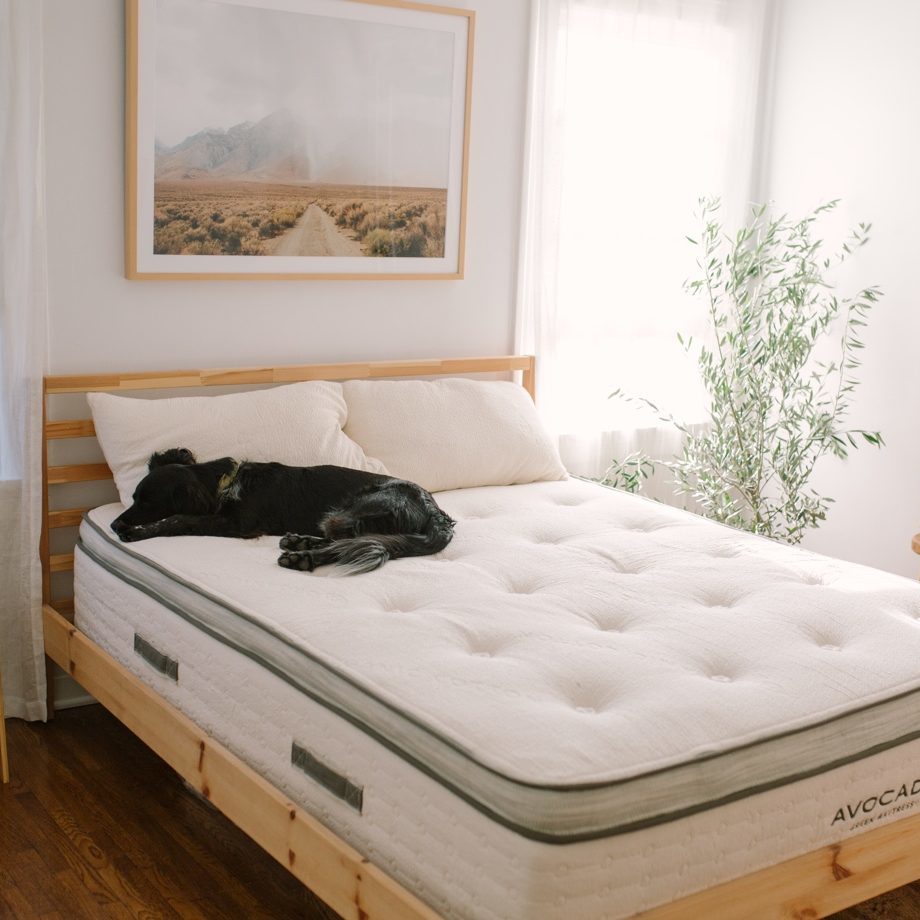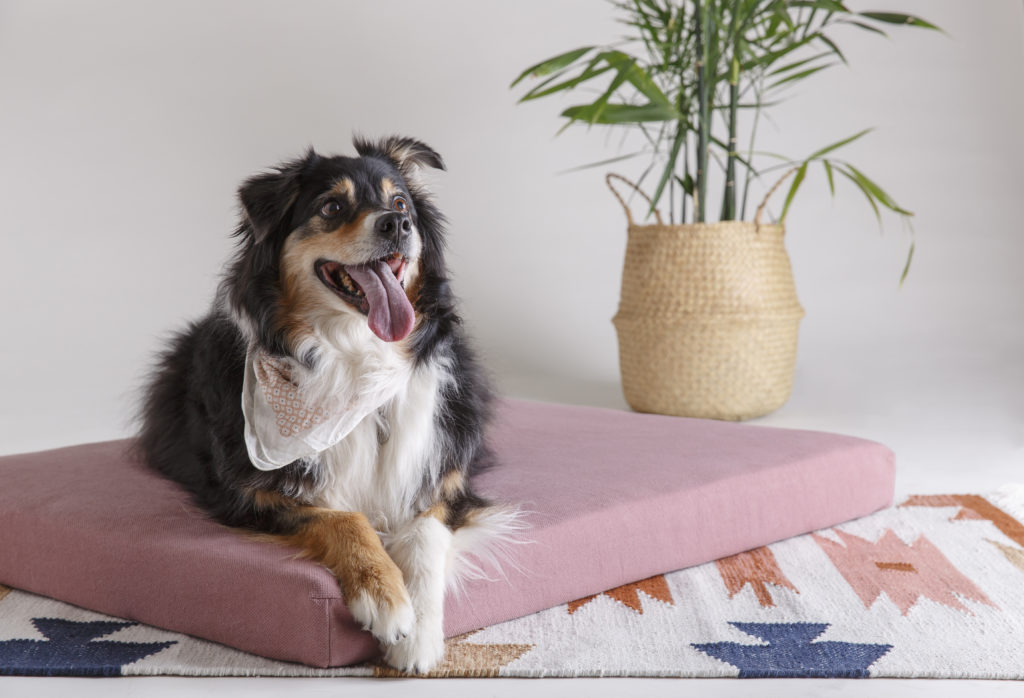We spoke to a sleep expert to find out if your dog sleeping in bed is a good idea. The verdict: it depends.
Our golden retriever started sleeping on our bed when she was less than six months old and small enough to curl up on the corner of my partner’s pillow when he traveled for work. Three years later, Mabel is 65 pounds and officially considers the space between our heads and the headboard as “her” spot. Her nightly routine involves situating herself around my head like an oversized travel pillow, nuzzling her nose into the crook of my neck, and deeply inhaling before letting out a long, contented sigh. This sounds lovely, in theory, until she starts part two of her routine: jumping off the bed and returning an hour or two later, asking permission to be let back on via a polite growl. This happens between one and three times a night, and lately, my partner and I have started thinking about solutions to the problem we created.
After doing some research, I learned that dogs are polyphasic sleepers, meaning they have about three sleep/wake cycles per hour over the course of a night (this explained a lot). Dogs are also always on the alert for unusual sounds or movements — in our case, neighbors on a late-night walk or the resident family of raccoons running across our roof. This elicits a more menacing growl that can go on for hours, depending on the level of perceived threat. Despite her watch-dog tendencies, Mabel doesn’t have an aggressive or dominant personality, which is another consideration when deciding whether your dog sleeping in your bed or in the bedroom is a good idea.
“For respiratory health, I encourage people to train their pet to sleep on top of the covers and on the lower half of the bed.”
I also talked with Seattle-based sleep expert Catherine Darley, N.D., who specializes in naturopathic treatment of sleep disorders, to find out if she recommends allowing your dog to sleep in the bed. According to Darley, the first question you should ask yourself is whether you remember being woken up. If so, your sleep is being impacted significantly enough to have long-term implications. Sleep disruptions can prevent you from reaching deep sleep and/or REM stage (the two categories of sleep that restore the body and re-energize the mind). “Long term, these disruptions will have an impact on cognitive function, along with mental and physical health,” says Darley.

Read more: 9 Eco-Friendly & Sustainable Products Your Pet Will Love
Darley typically starts by determining where the pet sleeps in the bedroom (their own bed, on top of the covers, or even underneath the covers). “For respiratory health, I encourage people to train their pet to sleep on top of the covers and on the lower half of the bed,” she says. (While sleeping with a pet can irritate allergies or asthma, in the U.S., the risk of disease from sleeping with your pet is low, with the most risk coming from fleas, ticks, etc.).
“After that, we look into their subjective quality of sleep and whether the patient is aware of the pet waking them up at night,” says Darley. “If they are aware that the pet is waking them up, either with movements or sounds, then it’s not helpful to have the pet present.” There are ways to mitigate sleep fragmentation. However, it often requires issue-specific problem-solving like removing a jangling collar before bed, changing the sleeping arrangement, or getting an automatic feeder to avoid waking up frequently.
Sleeping with a pet can cause objective measures of sleep to worsen (brief interruptions, often referred to as micro awakenings, can pull you out of a deep sleep and can be enough to change your sleep architecture, but are so short you might not be aware of it). But Darley notes that subjectively, people report better sleep when co-sleeping with a pet. “We need to feel secure to sleep well, and having another being there helps,” she says.
Many people will take the benefits of sleeping with a pet over the potential disruptions (more than 50 percent of dog owners report sleeping with their dogs). Studies are limited but show sleeping with a pet can help lower cortisol and heart rates and can even help alleviate more significant sleep disorders like anxiety-induced insomnia or chronic nightmares.

Read more: 5 Ways to “Green” Your Pet’s Routine
Taking Darley’s advice, we’re testing out a new sleeping arrangement, with Mabel only on the lower half of the bed (she was less than pleased at first, but is coming around to the idea). It’s working out well, with fewer nightly interruptions — that we can remember — and both my partner and I feel more rested in the morning and throughout the day.
If you’re waking up feeling fatigued and think your dog sleeping on the bed is hindering your quality of sleep, consider making a compromise.
Let your dog sleep with you only on the weekends, when your schedule is a bit more lax.
Make the full transition from your bed onto one of their own (Avocado has a line of cozy GOTS certified organic, orthopedic supporting dog beds). A 2015 study found adults without sleeping disorders typically sleep fine with a dog in the bedroom, but where the dog sleeps does make a difference in quality of rest.
But if these ideas are already giving you separation anxiety, it might be time for a bigger mattress.
Read more: 5 Pet-Friendly Houseplants For Cleaner Air
Did you transition your dog to one of Avocado’s GOTS certified organic Dog Beds? Share it with us by tagging @avocadogreenbrands on Instagram or Facebook.

Shop Pillows
The Essential Organic Pillow Collection
Gentle, breathable, non-toxic support.






